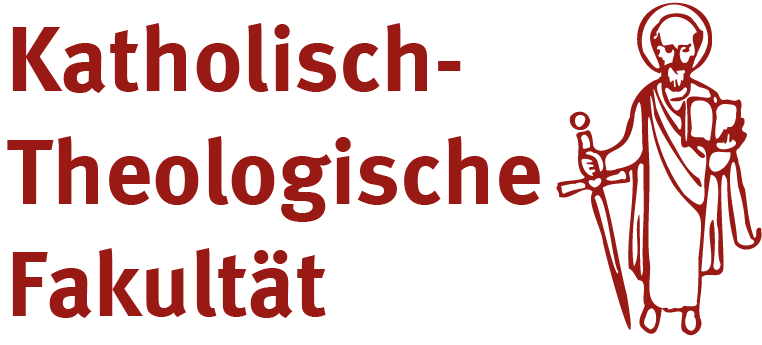
“He was too liberal for the conservatives and too conservative for the liberals”

On Easter Sunday, Pope Francis imparted the Easter blessing on thousands of faithful in St Peter’s Square. One day later, on April 21, the morning of Easter Monday, the 266th head of the Catholic Church died after suffering a stroke. Church historian Prof. Dr. Hubert Wolf has been researching the Catholic Church based on the documents kept in the Vatican archives for 40 years. The Vatican expert has closely followed the Argentinean’s twelve-year pontificate and draws mixed conclusions.
“He was too liberal for the conservatives and too conservative for the liberals,” summarizes Hubert Wolf. “Despite all his symbolic politics of simplicity and his pastoral emphasis on mercy, decisive reforms have not been implemented, e.g. when dealing with abuse cases, something that has severely damaged his and the Church’s credibility.” At the outset of his pontificate, Pope Francis raised high hopes already by choosing his name: “Until the day Jorge Mario Bergoglio was elected, no pope had ever chosen the name Francis. This was revolutionary,” explains the church historian. “After all, St Francis of Assisi is regarded an exponent of the radical medieval poverty movement, which significantly opposed the rich papal Church and its claims to power and clericalism.”
Pope Francis was only partially able to fulfil the claims arising from his chosen name. In Hubert Wolf’s eyes, the encyclical “Laudato si”, which focuses on the environment and its destruction, is a milestone with regard to the development of the papal magisterium, since it was the first time that a pope sought advice from the sciences on an ethical question deriving ethical norms from it. However, in many other respects, Francis fell short of many people’s expectations. “I hoped that he would also be guided by scientific findings on homosexuality with regard to sexual morality. Unfortunately, this was not confirmed,” admits Hubert Wolf. The Church historian also missed hearing clear statements on events of global importance from the head of 1.4 billion Catholics worldwide. “Why didn’t he speak out explicitly on Russia’s invasion of Ukraine? Or on Hamas’ terrorist attack on Israel?”
This ambivalent perception of the pontificate also became apparent when conservative critics torpedoed the Pope’s reform efforts. Together with Paul Zulehner and Michael Hajek, Hubert Wolf attempted to support the Pope’s efforts in a published volume. The Church historian was invited as an advisor at the Amazon Synod of 2019, in order to work together with Brazilian bishops to show that Church tradition and the self-evidence and legitimacy of married priests, who have always existed alongside celibate priests, are not incompatible at all. According to Hubert Wolf, the fact that Pope Francis never implemented the decision made at this synod led to a turning point: “Despite his commitment – especially to the poor and to refugees – his pontificate finally remained a ‘pontificate of announcement’ in many regards.”
During Pope Francis’ pontificate the archives pertaining to the pontificate of his predecessor Pius XII were opened, something that historians had repeatedly called for and that Benedict XVI had already initiated. However, in contrast to his two predecessors, Francis was rather reticent on this topic. “As the first non-European pope ever, the Argentinian maybe did not have the biographical experience of the Second World War and the Shoah that his two predecessors John Paul II and Benedict XVI had shared,” assumes Hubert Wolf. In 2020, the holdings on Pius’ XII pontificate in the Vatican archives were finally made accessible, which granted the Church historian and his team a whole new research perspective, since they discovered roughly 10,000 letters of petition addressed to Pope Pius XII by Jewish people.
Links related to this press release
- Hubert Wolf in an interview with Deutschlandfunk about Pope Francis
- Hubert Wolf in an interview with Spiegel about Pope Francis
- Hubert Wolf in an interview with the NDR about Pope Francis
- Hubert Wolf in an interview with the Rhein-Neckar-Zeitung about Pope Francis
- Hubert Wolf in an interview with the ORF about the diplomacy of Pope Francis
- Hubert Wolf in ARD Popecast about the crises in the pontificate Franziskus
- Hubert Wolf in an interview with Deutschlandfunk Nova about Pope Francis' succession
- Hubert Wolf in the podcast ‘Diesseits von Eden’ on Pope Francis and the future of the papacy
- Terra X: Konklave - Das Geheimnis der Papstwahl with Hubert Wolf
- Hubert Wolf in an ZDF report "Blackbox Konklave - Die geheime Papstwahl"
- Hubert Wolf in an interview with Deutschlandfunk about the conclave
- Hubert Wolf in an interview with Deutschlandfunk about the significance of the papal office today
- Hubert Wolf in Süddeutschen Zeitung about the conclave
- Department of Medieval and Modern Church History media review

